allied powers
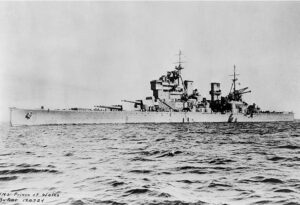
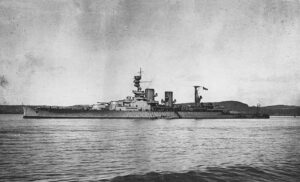 When we think about the enemies of war, we usually think of two nations that unequivocally hate each other. It is thought that every member of teach nation totally hates every member of the other, but that is not even logical. It doesn’t matter what nation you are talking about, the people of those nations are thoughts to hate each other, and many of them do, but nt all of them do. Not everyone loved war, and not everyone loves killing.
When we think about the enemies of war, we usually think of two nations that unequivocally hate each other. It is thought that every member of teach nation totally hates every member of the other, but that is not even logical. It doesn’t matter what nation you are talking about, the people of those nations are thoughts to hate each other, and many of them do, but nt all of them do. Not everyone loved war, and not everyone loves killing.
World War II was the deadliest wars in world history. It seemed that everyone hated everyone else, or at least that those from the one side (the Allied Powers) hated the other (the Axis of Evil). That wasn’t true either. The leaders probably hated each other, but the people of the nations were caught in the middle of the hatred of their leaders. Many of the people, civilians and military alike were family people, they had a love of others. Many of the people who fought in World War II had no idea of the horrors that were taking place. When they finally found out about it, they were absolutely horrified.
Still, those who fought in the war, knew some of the casualties of the war. A fighter pilot can’t fly over an expanse of an ocean battlefield and not see the losses taking place. For a fighter pilot or a bomber crew, it was not only possible to see the devastation, but they could also imagine what was going on below them as ships sink so quickly that the men onboard cannot escape. To add to the horror, the fact that these ships were his by torpedoes, bombs from the planes, bullets from the planes, and the planes themselves brought the added horror of fire and burning bodies. If a pilot let himself think about it, I think it would be possible to become physically ill at the thought of the horrors going on below them.
One fighter pilot felt that very deeply. During a sea battle in the Pacific Ocean in December 1940, two Royal Navy ships, the HMS Prince of Wales and the HMS Repulse were sunk by Japanese fighters. The scene must have been horrific for the pilots above, whether they were British or Japanese, they knew that men were dying horrific deaths below them. The loss of life so impacted on Japanese fighter pilot that he came back to the spot 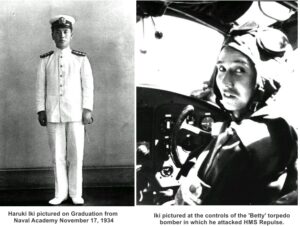
 the next day and dropped two wreaths on the water. His action was to commemorate the dead from both sides during WWII. Japanese Flight Lieutenant Haruki Iki flew to the location of the battle and dropped the two wreaths over the seas. It was a simple act, but it was also a profound act. It showed that while the nations were enemies, the people of the nations were not necessarily enemies too. It also showed that even enemies can have compassion on the other side. War is not all about hate, it is also about being caught in the middle, with no way out but to fight.
the next day and dropped two wreaths on the water. His action was to commemorate the dead from both sides during WWII. Japanese Flight Lieutenant Haruki Iki flew to the location of the battle and dropped the two wreaths over the seas. It was a simple act, but it was also a profound act. It showed that while the nations were enemies, the people of the nations were not necessarily enemies too. It also showed that even enemies can have compassion on the other side. War is not all about hate, it is also about being caught in the middle, with no way out but to fight.
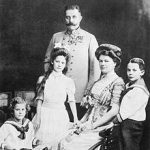
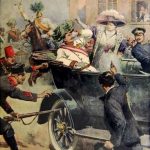 It’s amazing to me that one act of hate can bring so many people to war, but that was what happened with World War I. On June 28, 1914, Archduke Franz Ferdinand of Austria, and his wife, Sophie, Duchess of Hohenberg, were assassinated by a Serbian nationalist in Sarajevo, Bosnia. The assassin, Gavrilo Princip was an ethnic Serb and Yugoslav nationalist from the group Young Bosnia, which was supported by the Black Hand, a nationalist organization in Serbia. The outraged Austrian people and its government threatened mobilization of troops to seek vengeance for their beloved leader and his family.
It’s amazing to me that one act of hate can bring so many people to war, but that was what happened with World War I. On June 28, 1914, Archduke Franz Ferdinand of Austria, and his wife, Sophie, Duchess of Hohenberg, were assassinated by a Serbian nationalist in Sarajevo, Bosnia. The assassin, Gavrilo Princip was an ethnic Serb and Yugoslav nationalist from the group Young Bosnia, which was supported by the Black Hand, a nationalist organization in Serbia. The outraged Austrian people and its government threatened mobilization of troops to seek vengeance for their beloved leader and his family.
The crisis escalated as the conflict between Austria-Hungary and Serbia came to involve Russia, Germany, France, and ultimately Belgium and Great Britain. By mid-August of 1914, the crisis had become a full blown war, with Germany, Austria Hungary and the Ottoman Empire, known as the Central Powers, against Great Britain, France, Russia, Italy and Japan, the Allied Powers. The United States would also enter the war as a part of the Allied Powers in 1917. Other factors came into play during the diplomatic crisis that preceded the war, such as misperceptions of intent in that Germany believed that Britain would remain neutral, the belief that war was inevitable, and the speed of the crisis, which was exacerbated by delays and misunderstandings in diplomatic communications. The four years of the Great War…as it was dubbed…saw unprecedented levels of carnage and destruction, thanks to grueling trench warfare and the introduction of modern weaponry such as machine guns, tanks and chemical weapons. By the time World War I ended in the defeat of the Central Powers in November 1918, more than 9 million soldiers had been killed and 21 million more wounded.
Evil exists in this world, and it gets worse every day, and assassinations are not new. Chanakya, 350–283 BC, an Indian teacher, philosopher and royal advisor, wrote about assassinations in detail in his political treatise Arthashastra. Later, his student Chandragupta Maurya, the founder of the Maurya Empire of India, made use of assassinations against some of his enemies, including two of Alexander’s generals Nicanor and Philip. I suppose it should not be a surprise, yet every assassination brings with it shock, fear, and rage. 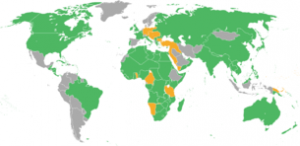
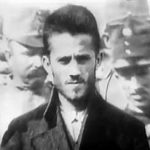 Countless wars have been fought over one nation’s ruler being killed by someone from another nation. War will be a part of our world until the end of time, but that in no way lessens the worry, fear, and sadness that war always brings. Still, like the Allies of World War I, we cannot let one group or nation hold power over another group or nation…which also explains the need to destroy ISIS.
Countless wars have been fought over one nation’s ruler being killed by someone from another nation. War will be a part of our world until the end of time, but that in no way lessens the worry, fear, and sadness that war always brings. Still, like the Allies of World War I, we cannot let one group or nation hold power over another group or nation…which also explains the need to destroy ISIS.

